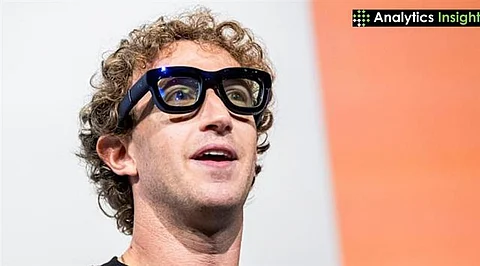

In a headline-grabbing move, Meta has secured a key AI executive from Apple, Frank Chu. The surprising move came at a time when the Mark Zuckerberg-led company reportedly slowed down the aggressive hiring process.
Notably, Frank Chu’s exit marks the sixth consecutive departure of an Apple employee to Meta in just seven weeks. This once again intensifies the rivalry between these two tech giants to dominate the AI landscape.
Meta’s once again poaching of an AI executive from Apple marks a stark contrast to the company’s declared slow hiring strategy. Instead of open hiring, Mark Zuckerberg’s company targets established stars in the field and lures them with higher pay packages, which sometimes rise to 50 times higher than what they previously received.
Previously, Meta hired Apple’s models team lead, Ruoming Pang, and reportedly, the company offered him a package of over $200 million. This hints at Meta’s constant and desperate push to win over the artificial intelligence industry.
The latest hiring, Frank Chu, joins the newly founded MSL infra team of Meta, which is created as a part of Zuckerberg’s Superintelligence Labs. Reportedly, Chu used to manage the running of LLMs in Apple’s cloud servers, and has experience in developing some features of Siri.
Considering the responsibilities, he is the second largest departure from Apple after Ruoming Pang. This constant Meta hiring of executives from top rivals underscores the importance of having experienced people to accomplish its goal and accelerate its advanced AI research.
The tech giant initiated this aggressive hiring strategy in July. Since then, it has poached multiple executives from Apple, OpenAI, Google, and Anthropic. This strategy of Zuckerberg, targeting rivals’ AI talent, even with multi-billion-dollar packages, signifies a bold strategy to dominate human capital in the AI race.
In this one month, Meta AI has hired over 50 engineers and researchers with sky-high packages that have increased investor concerns over stock-based compensation and boardroom confidence.
As a consequence, Meta has announced plans to slow down further hiring, signaling a strategic shift to make selective critical hires rather than expanding headcount.
Also Read: Meta Cuts 3,000 Jobs While Expanding AI Hiring for Future Growth
Zuckerberg's company's strategy to hire talent from rivals delivers a double-edged blow. On one hand, having all the experienced AI talents under one roof may accelerate breakthroughs, fulfilling Mark Zuckerberg’s vision for superintelligence, but on the other, there’s a risk of constraining diversity of thought.
Apple’s vision and morale differ from Meta’s; therefore, the executives may struggle to adapt to the new roles under pressure. This may lead Meta to suffer internal instability. Most importantly, if these multi-billion-dollar hirings don’t pay up to expectations, Meta may face backlash for overpaying while under-delivering.
To sum up, Meta’s aggressive hiring may prove either a positive transformation in the long term, or it will simply make the company suffer a lot in the future.
